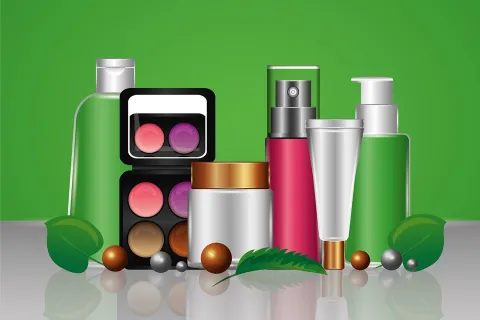
Sri Lanka, known for its rich heritage and growing consumer market, presents an attractive opportunity for cosmetic brands aiming to expand in South Asia. With a rising demand for beauty and personal care products, understanding the regulatory landscape in Sri Lanka is critical for market entry. This blog provides an overview of the cosmetics regulations in Sri Lanka, recent updates, and essential considerations for ensuring compliance.
Regulatory Authority and Framework
Cosmetic products in Sri Lanka are regulated by the National Medicines Regulatory Authority (NMRA), which oversees the import, manufacture, and sale of cosmetics to ensure public safety. The framework is grounded in the National Medicines Regulatory Authority Act, No. 5 of 2015, which extends its scope to cosmetics, medical devices, and pharmaceuticals.
Product Classification and Definition
In Sri Lanka, cosmetics are broadly defined as substances or preparations intended for use on the human body to cleanse, beautify, or enhance appearance without altering the body’s structure or functions. This definition aligns closely with global standards such as those of the European Union, ensuring clarity in product classification.
Cosmetic Product Registration Process
Before entering the Sri Lankan market, cosmetics must undergo a Cosmetic product registration process. Key steps include:
- Ingredient Safety: Sri Lanka restricts the use of certain harmful substances. Importers and manufacturers must ensure compliance with the NMRA’s approved ingredient list.
- Labeling and Packaging Requirements: Cosmetics sold in Sri Lanka must comply with specific labeling guidelines to ensure transparency and consumer safety. Labels should include:
- Brand name and Product name
- Product Function/ Intended Use
- The weight or volume of the contents.
- The date of manufacture.
- Manufacturer and distributor details
- Batch number and expiry date
- List of ingredients in descending order of concentration
- The country of manufacture.
- The name and address of the company or person responsible for marketing the product locally.
- Usage instructions and warnings (if applicable)
Labels must be in English or Sinhala, ensuring accessibility for local consumers.
- Compliance with Standards: Products should adhere to internationally recognized standards, such as the ISO 22716 for Good Manufacturing Practices (GMP).
- Submission of Dossier: Brands must provide comprehensive details, including product formulation, safety assessment report, GMP certificate, and product label.
Cosmetics Import Regulations
For international brands, obtaining an import license from the NMRA is mandatory. Importers must work with authorized local representatives who act as a bridge between the regulatory authority and the brand. Additionally, samples may be subjected to laboratory testing to verify compliance with safety and quality standards.
Market Trends and Opportunities
The Sri Lankan cosmetics market is witnessing a shift towards natural and organic products, driven by consumer awareness and a preference for sustainable solutions. Ingredients such as coconut oil, turmeric, and other botanicals native to Sri Lanka are gaining traction. Brands offering eco-friendly and cruelty-free products have a competitive edge in this evolving market.
Challenges and Updates
One of the primary challenges for cosmetic brands in Sri Lanka is understanding the intricate regulatory process, particularly for novel or innovative products. However, the NMRA is actively working to streamline procedures, ensuring a balance between consumer safety and market accessibility.
Recent updates emphasize stricter controls on counterfeit products, underscoring the importance of working with reliable distribution partners. Furthermore, there is a growing focus on digital marketplaces, requiring brands to align their compliance strategies with online sales platforms.
Conclusion
Understanding and adhering to Sri Lanka’s cosmetics regulations is essential for building consumer trust and achieving long-term success in this vibrant market. By aligning with the NMRA’s guidelines, brands can ensure product safety and compliance while tapping into the growing demand for high-quality cosmetics. Whether you’re a local manufacturer or an international player, understanding these regulatory pathways with diligence will open doors to a promising market full of potential. For Regulatory assistance with cosmetics product registration in Sri Lanka, feel free to reach out to our experts at Freyr. A smooth entry into the market is the first step toward creating lasting impressions.









